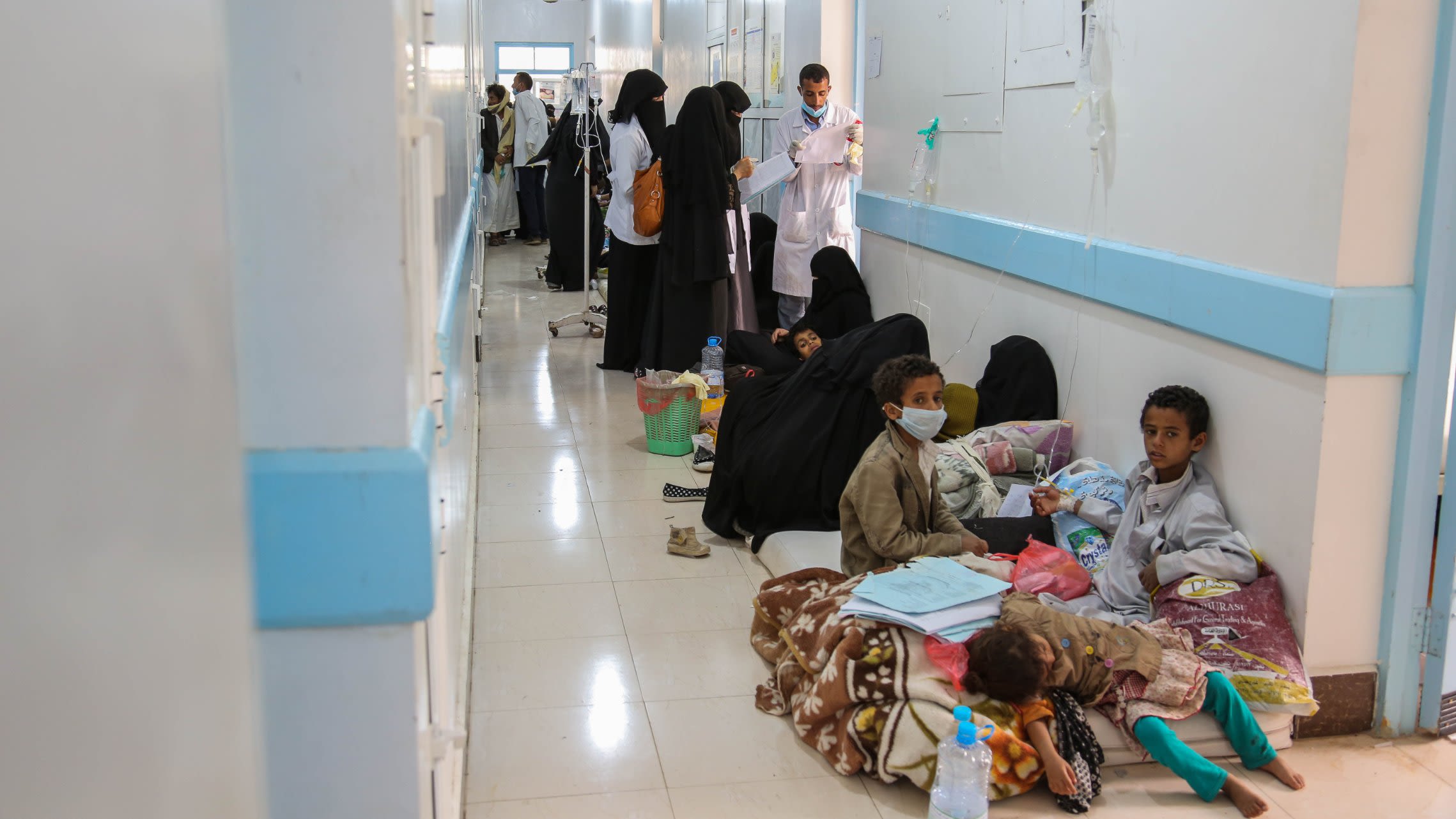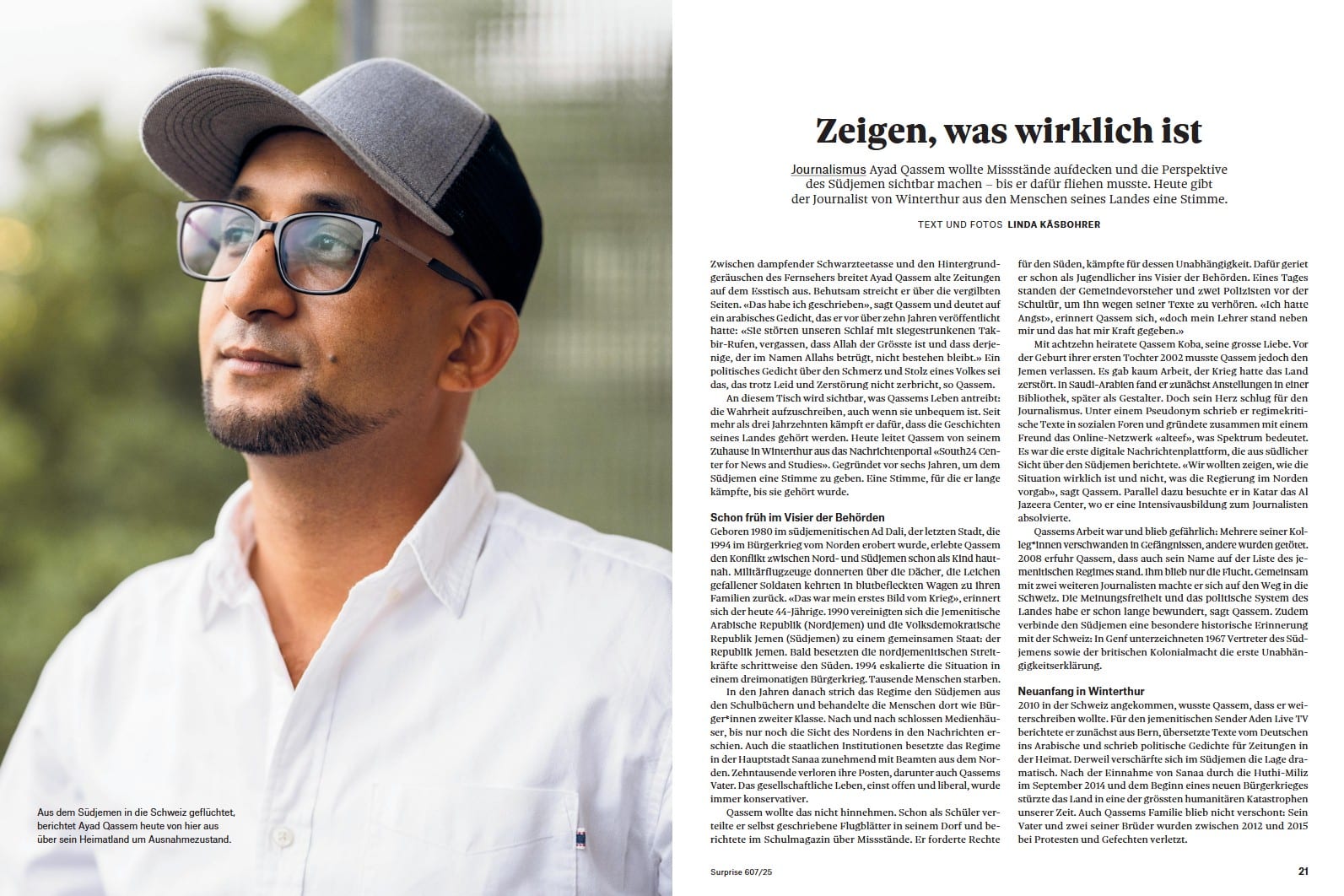
Photo: UNICEF
آخر تحديث في: 30-04-2024 الساعة 9 صباحاً بتوقيت عدن
In recent years, Yemen has been struck with multiple cholera outbreaks. Now, the last few weeks have seen an escalation in international warnings regarding the seriousness of Yemen’s health situation.
Abdullah Al-Shadli (South24)
Since the beginning of this year, cholera has significantly spread across multiple Yemeni cities, marking the latest wave of an epidemic of this acute intestinal bacterial disease, which spreads through contaminated food and water.
In recent years, Yemen has been struck with multiple cholera outbreaks. Now, the last few weeks have seen an escalation in international warnings regarding the seriousness of Yemen’s health situation, as the country enters its tenth year of war. So, how severe is the situation today?
Houthi-controlled areas
On April 15th, the Director of Operations and Advocacy at the United Nations Office for the Coordination of Humanitarian Affairs (OCHA), Edem Wosornu, stated that "cholera in Yemen has re-emerged in a worrisome manner since last October."
She pointed out that in areas controlled by the internationally recognized government (IRG), the response is slowing the disease’s spread. However, in Houthi-controlled areas, more than 11,000 cases of cholera infection and 75 deaths have been reported in the same period.
According to a report issued by the World Health Organization (WHO), 1,566 suspected cases of cholera were recorded in 15 governorates throughout Yemen from January 1st to March 17th, 2024. This number included 9 confirmed cases of cholera and 6 deaths. The report also noted that 60% of suspected cases were reported in the Houthi main stronghold of the Saada governorate alone, while Sanaa accounted for 8%, Al-Bayda 5%, Al-Mahwit 5%, Ibb 4%, Marib 3%, and Amran 3%.
Despite the spread of the epidemic, the Houthis have so far remained silent on the subject, as a source in the health office in Hodeidah governorate explained to South24 Center, on condition of anonymity. According to the source, cholera is spreading continuously, "especially in Sanaa, Amran, Hajjah, and Dhamar."
When South24 Center attempted to contact the Ministry of Health in Sanaa regarding the matter, an official there refused to offer a statement.
The rate of infection for deadly diseases such as polio has been steadily increasing in Houthi-controlled areas in recent years after the militant group actively prevented vaccination and immunization campaigns, amid accusations from Houthi officials that the United States and collective West are trying to spread diseases and target future generations.
Recently, an increase in cancer cases in areas under Houthi control was revealed, caused by the importation of banned Israeli agricultural fertilizers through the port of Hodeidah.
Related: Houthis import banned cancer-causing Israeli pesticides
Government-controlled areas
In the capital, Aden, the health office director did not respond to South24 Center's request to clarify the extent of the cholera outbreak. However, Dr. Rajaa Al-Shuaibi, the director of Al-Sadaqa Hospital, one of the largest and most important hospitals in Aden, told South24 Center: "Between mid-March and April 20th, we have received around 700 confirmed cases in Aden."
The health official pointed out that some of the infected individuals are African immigrants.
In Al-Dhalea Governorate, Dr. Ayad Saleh Abdullah, the health office director, told South24 Center: "After the emergence of the cholera outbreak in neighboring governorates, infection cases started appearing in Al-Dhalea Governorate from the beginning of April" and "The number of registered cases of infection in the governorate so far reached 140. The most affected district is Al-Azariq," he added.
In Shabwa Governorate, Dr. Ali Al-Theeb, the health office director, told South24 Center: "Around 11 cholera cases have been recorded since the beginning of this year, all among immigrants coming from the African continent."
In Hadramout Governorate, the director of the Epidemiological Surveillance Department, Dr. Rola Badris, confirmed to South24 Center that there have been no registered cases of cholera so far. However, the lack of cases related to this epidemic in the Wadi Hadramout districts has yet to be confirmed, due to the poor response from health authorities there.

In Socotra Governorate, Dr. Issa Al-Shanqabi, the health office director, told South24 Center: "No cholera cases have been registered in Socotra so far. We are prepared and have not received any support at the moment." On April 8th, the official Saba News Agency quoted the health office director in Al-Mahra Governorate, Dr. Awad Mubarak, as stating that the governorate has not recorded any confirmed cases of cholera.
In Abyan Governorate, Dr. Saleh Al-Thuram, the health office director, told South24 Center: "According to the current situation as of mid-April, there are 75 suspected cases of cholera, including 9 cases confirmed through laboratory tests. Two deaths have been recorded." He added: "The cases are concentrated in the directorates of Zinjibar, Khanfar, and Al-Mahfad."
In Taiz Governorate, which is divided between the IRG and the Houthis, the government-appointed health office director, Abdulrahman Al-Sabri, told South24 Center: "So far, 402 suspected cases of cholera have been recorded, including 129 confirmed cases through agricultural examinations."
In Marib Governorate, a health meeting held on April 18th indicated that the number of suspected cholera cases in the governorate had reached approximately 176, with no confirmed cases after laboratory tests.
Reasons for the Spread
Dr. Raja Al-Shuaibi explains that the main reason for the spread of cholera in the capital, Aden, is the illegal entry of African immigrants carrying the disease, in addition to the continuous waves of displaced people coming from Houthi-controlled areas in North Yemen. The spread of the disease in Al-Dhalea was also attributed to these same factors by the governorate’s health office director, Ayad Saleh.
Although Hadramout has yet to record any confirmed cases of cholera, Dr. Rola Badris, the director of the Epidemiological Surveillance Department, expressed her concerns about the arrival of the disease in the governorate, particularly after the recent tropical depression and subsequent flash floods, which damaged the roads and water networks supplying citizens.
In an attempt to limit the spread of cholera, local authorities in Aden issued directives to prevent the employment of African immigrants who arrived illegally. This came during a meeting held by the Deputy Governor of Aden, Badr Muawen Said, with health officials on April 17th.
Absence of the Ministry of Health
The Yemeni Ministry of Health has not yet taken any significant measures to confront the spreading cholera epidemic. On the matter, the Director of Health in Al-Dhalea stated, "So far, we have not received any support from the government or relevant authorities. We have also not received any support from organizations."
However, the governorate’s Health Office has started taking necessary measures to address the epidemic, including the opening of isolation centers in the districts and city of Al-Dhalea.
The director of Al-Sadaqa Hospital in Aden called on the responsible authorities and international organizations to urgently intervene to prevent the situation from getting out of control. She also pointed out that the current medical stock for cholera infection cases "does not meet the needs."
The Shabwa Health Office called for a number of urgent solutions to combat cholera, including "providing medications, financial incentives to medical staff, establishing dedicated camps for migrants to monitor their health and prevent the spread of infection, and combating the smuggling of migrants through illegal routes."
The health office director in Abyan emphasized the need to improve sanitation services and provide clean water, adding, "Primary healthcare programs should be supported, and cooperation between all relevant authorities should be strengthened to combat the epidemic."
The head of the Epidemiological Surveillance in Hadramout Coast stated, "The governorate urgently needs international support to provide the basic needs for combating cholera, including medications and medical supplies, and to focus on infrastructure projects, especially those related to sewage networks."
With the absence of government intervention and insufficient humanitarian efforts, epidemics have been thriving in Yemen recently. The 2023 annual report on Yemen by South24 Center indicated that the country "has become a hotbed for epidemics and infectious diseases, such as cholera and diphtheria." The report cited figures from the WHO and other sources as indicators of the dire situation.
Related: Yemen in 2023: Hope flickers despite hardships, annual report

قبل 3 أشهر

قبل 3 أشهر